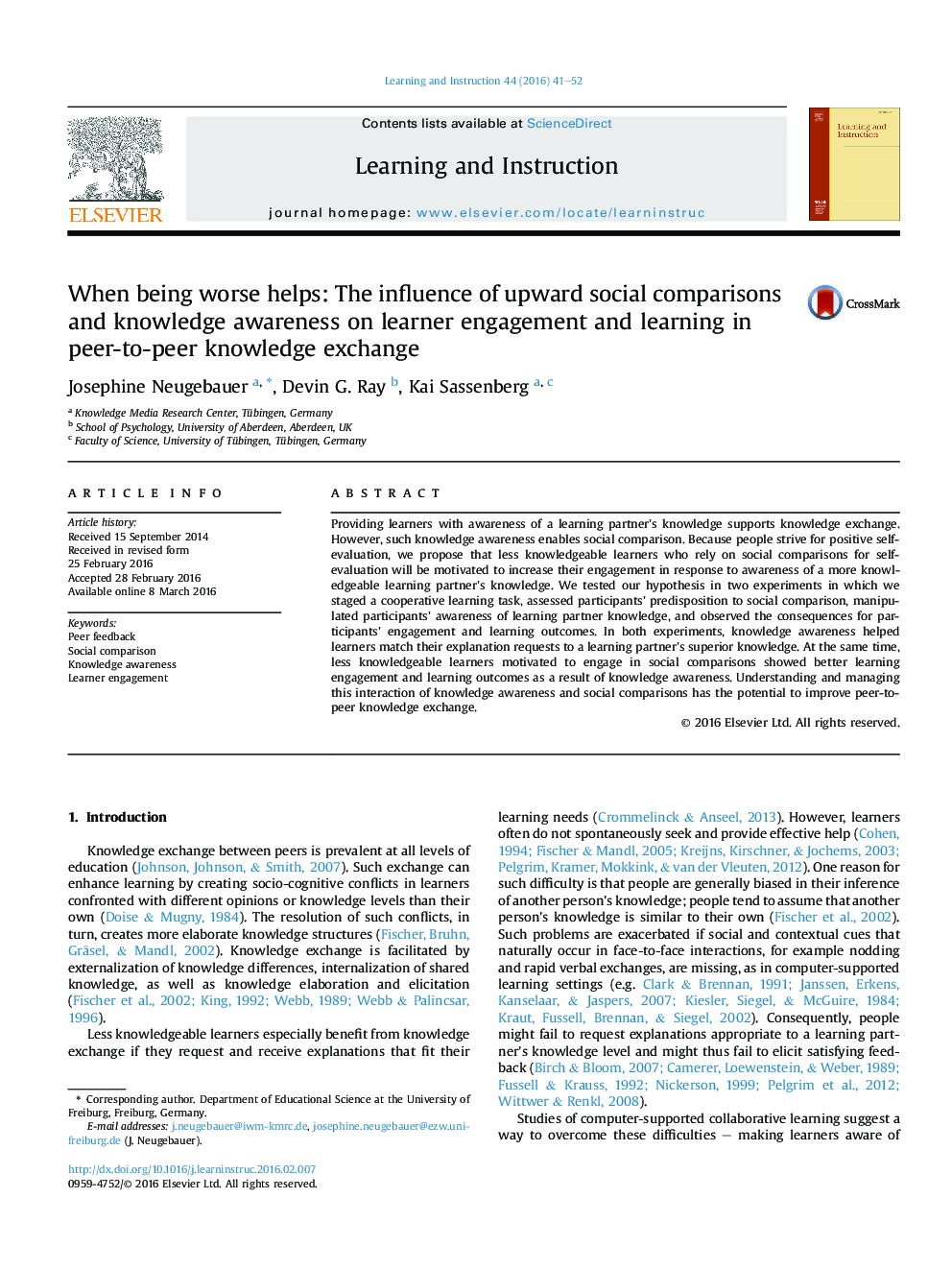| Article ID | Journal | Published Year | Pages | File Type |
|---|---|---|---|---|
| 365471 | Learning and Instruction | 2016 | 12 Pages |
•Knowledge exchange can be supported by creating awareness of partner knowledge.•This knowledge awareness introduces the potential for social comparisons.•Upward social comparisons can lead to more learner engagement and learning.•But only some people are predisposed to rely on social comparison.
Providing learners with awareness of a learning partner's knowledge supports knowledge exchange. However, such knowledge awareness enables social comparison. Because people strive for positive self-evaluation, we propose that less knowledgeable learners who rely on social comparisons for self-evaluation will be motivated to increase their engagement in response to awareness of a more knowledgeable learning partner's knowledge. We tested our hypothesis in two experiments in which we staged a cooperative learning task, assessed participants' predisposition to social comparison, manipulated participants' awareness of learning partner knowledge, and observed the consequences for participants' engagement and learning outcomes. In both experiments, knowledge awareness helped learners match their explanation requests to a learning partner's superior knowledge. At the same time, less knowledgeable learners motivated to engage in social comparisons showed better learning engagement and learning outcomes as a result of knowledge awareness. Understanding and managing this interaction of knowledge awareness and social comparisons has the potential to improve peer-to-peer knowledge exchange.
